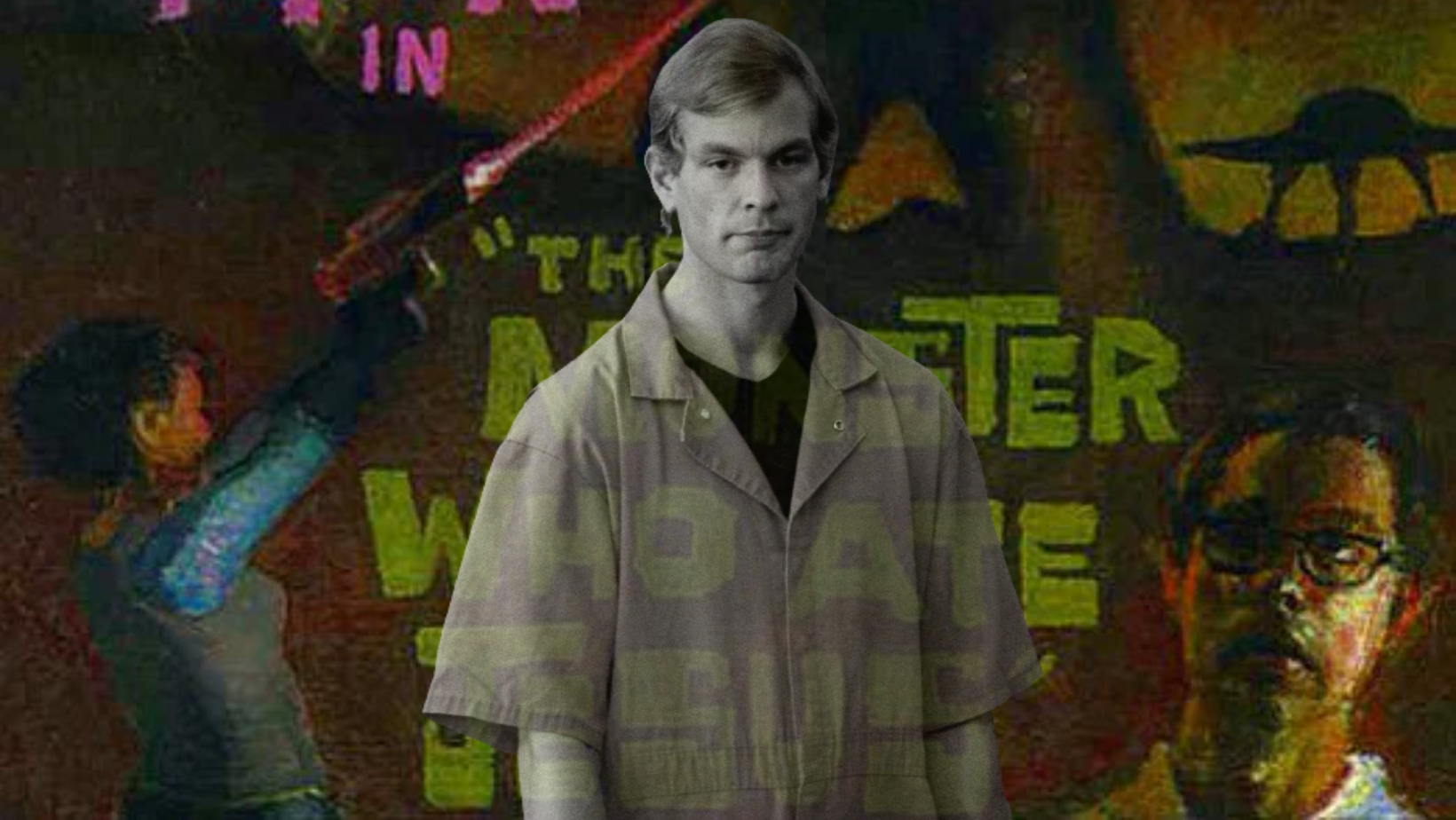During the late ’90s and early 2000s, there was nothing more exciting to me than the underground Christian music scene. In 1997, at age 12, I started devouring all the Christian punk music I could find.
One of my favorite bands was called Blaster the Rocket Man. They were perhaps the most unique of any other band. Their lyrics centered on horror and sci-fi themes – like werewolves, vampires, and aliens – but from an explicitly Christian worldview. In Blaster’s songs, monsters could be saved from their monstrosities if they put their faith in Jesus. It was very Kuyperian if you think about it: Every square inch belongs to Jesus…even the horror genre.
One of Blaster’s albums was called The Monster Who Ate Jesus. That title might seem sacrilegious on the surface, but I’ve always taken it as a reference to the Lord’s Supper (eucharist, communion). In one of the band’s earlier songs, “American Werewolf,” the only way for the werewolf to end his curse was to eat and drink Christ’s body and blood. I was reminded of this concept while watching Monster, the Netflix show about Jeffrey Dahmer. (Warning: mature audiences only.)
Dahmer was one of the most notorious serial killers in US history, nicknamed the Milwaukee Cannibal. From the late ’70s to the early ’90s, Dahmer drugged, raped, killed, and ate his victims (mostly gay black men). Most people – Christian or not – find these crimes utterly reprehensible. Dahmer’s level of depravity cannot be overstated.
And yet, one of the most fascinating things about Dahmer is that he claimed to become a Christian in prison. Mind you, jailhouse conversions aren’t that fascinating. Many people claim to find Jesus behind bars and many of those conversions are dishonest and/or short-lived. What’s always fascinated me about Dahmer was that he never used his faith to try to get out of prison. In fact, he wanted to be executed, which is the biblical penalty for rapists and murderers (Genesis 9:6, Deuteronomy 22:25-27).
As far as we can tell, Dahmer wasn’t trying to gain anything by claiming Christianity. In my mind, that strengthens the plausibility of his faith being genuine. We should reserve judgment, of course. We won’t know for sure until we get to heaven. But Dahmer’s pastor, Roy Ratcliff, believed he was sincere, so it’s something we must consider. What if Dahmer is your brother in Christ? What if Dahmer is in the great cloud of witnesses? You just might meet him one day. You might live in the resurrection with him.
I was impressed with how Episode 10 of Monster handled Dahmer’s conversion and baptism. The ministers weren’t portrayed as cheesy; they didn’t say or do anything embarrassing. I found them to be compassionate and biblically-sound. There was some good baptismal theology, too. Immediately after Dahmer’s baptism, Pastor Ratcliff said, “Welcome to the family of God.” Dahmer also spoke of baptism as washing away his sins (Acts 22:16).
The show did not depict Dahmer eating the Lord’s Supper, but I’m sure he was able to partake before he died. Ratcliff claims that Dahmer was eager to take communion. I think the producers of the show missed a great opportunity. The redeemed cannibal eating the body of Christ would have been a powerful scene.
Vampires and werewolves aren’t real, but monsters like Jeff Dahmer are. The solution for them is the solution for all of us: The saving work of Jesus Christ. Only the blood of Jesus can turn monsters into men. Blaster the Rocket Man said it well in “All the Way to the Blood Bank.”
Make no mistake, it’s not a wooden stake
That’ll end this curse and put this ghoul in a hearse
What can wash away my sin?
Nothing but the blood of Jesus!
Blaster the Rocket Man, Christian punk, Dahmer, Monster, Netflix

















